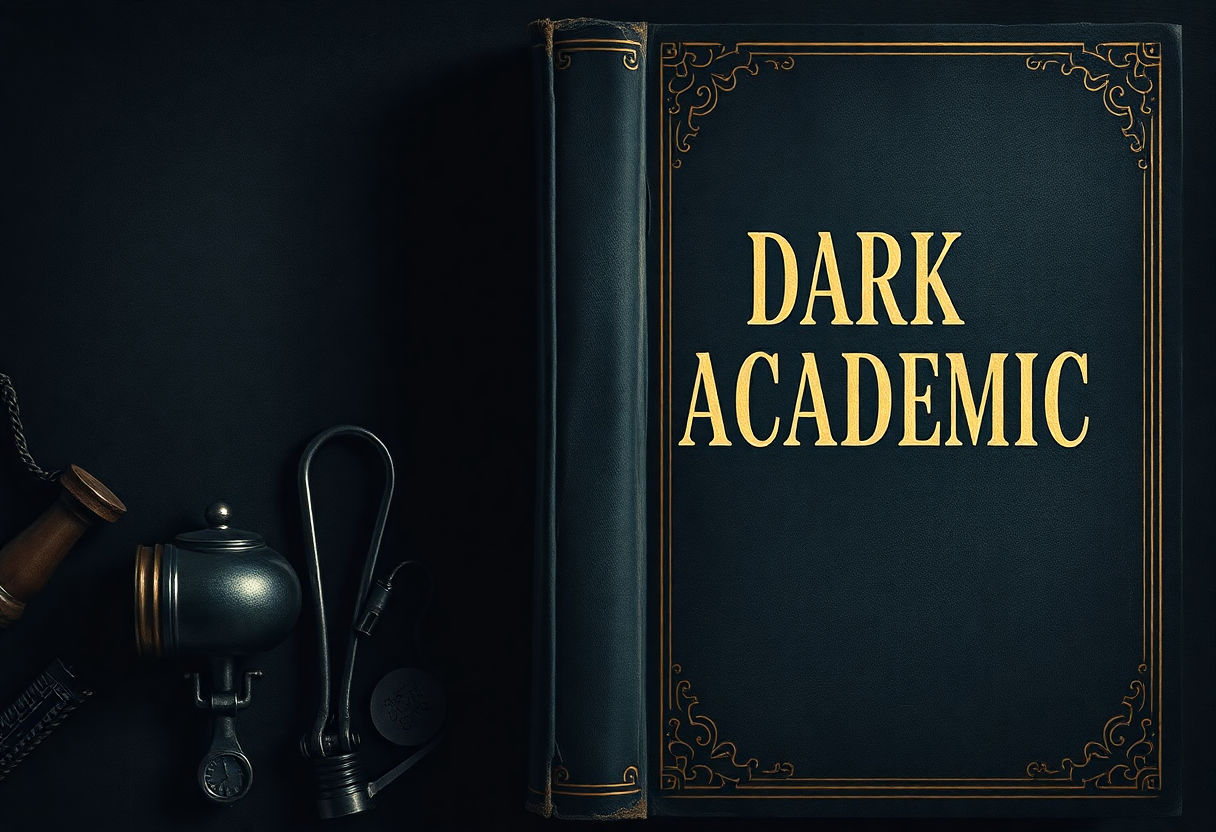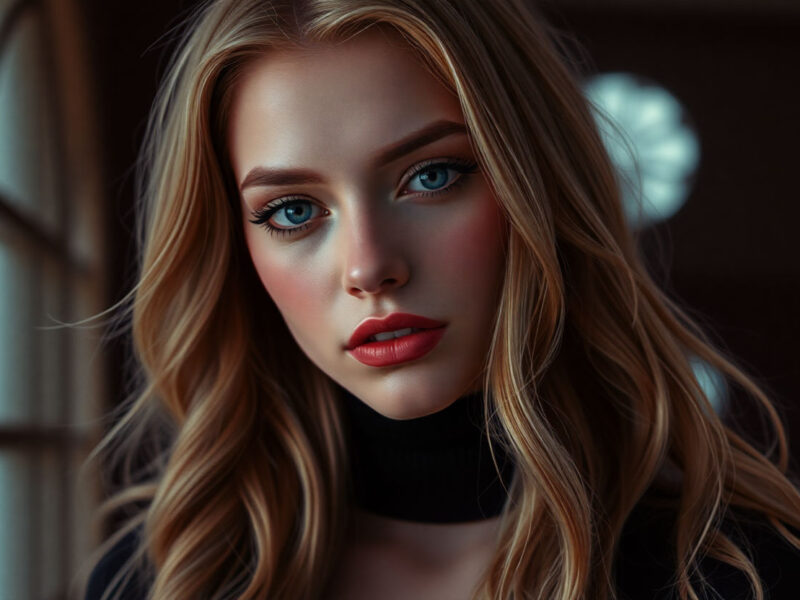Dark Academia captivates with its enchanting embrace of gothic allure, scholarly settings, and introspective themes. This genre—a tapestry woven from the threads of intellectual pursuit and dark aesthetics—has captivated a broad audience seeking depth and mystery in literature. Here, we will explore the origins and defining characteristics of Dark Academia, delve into works by notable and diverse authors, and present a curated selection of classic and contemporary masterpieces. As you uncover how this movement shapes both literature and popular culture, prepare to be drawn into a world where the past and present converge in scholarly intrigue and timeless elegance.
Key Takeaways
- Dark Academia is a genre that combines gothic elements with themes of education, introspection, and intellectual pursuits, creating a unique literary experience.
- The movement has its roots in gothic literature, featuring academic settings and introspective characters that invite readers to explore deep philosophical questions.
- Notable authors have shaped Dark Academia by providing rich narrative tapestries and distinctive literary voices that captivate readers globally.
- The genre has evolved in contemporary literature, reflecting current trends while maintaining its core allure, making it relevant to modern readers.
- Dark Academia has significantly influenced popular culture, impacting fashion and media through its enigmatic aesthetic and thematic depth.
The Origins of Dark Academia

Dark Academia, as a cultural and literary movement, finds its roots deeply embedded in the evocative realm of gothic literature and the Romantic era, both known for their fascination with the eternal struggle between reason and emotion. This genre is characterized by its setting in academic institutions, where the pursuit of knowledge becomes as alluring as the dark secrets that accompany it.
Gothic literature, with its mysterious castles, tormented characters, and exploration of the supernatural, laid the groundwork for Dark Academia’s atmospheric setting. Works such as Mary Shelley’s Frankenstein and Edgar Allan Poe’s haunting poems have significantly influenced this genre’s aesthetic and thematic elements.
Additionally, the intellectual allure of Dark Academia can be traced to the Romantic period, a time that celebrated individuality, emotional depth, and a profound connection with nature. This era’s literary contributions highlighted introspection and self-discovery, facets that are prominently reflected in Dark Academia narratives.
From the dusty corridors of ancient libraries to the hallowed halls of prestigious universities, Dark Academia captures a nostalgic yearning for a bygone world of learned pursuits and existential musings. This movement appeals to those who revel in the idea of education as a transformative journey, wrapped in an aura of mystery and introspection. The genre invites readers to question the very nature of knowledge and the perils and pleasures it harbors, creating a unique narrative that blends the academe’s intellectual vigor with the brooding sensibilities of gothic traditions.
Defining Characteristics
Dark Academia captivates its audience through a compelling blend of distinctive characteristics that echo across its literature. At the forefront is its aesthetic, heavily inspired by gothic architecture and classical art. This aesthetic creates a moody and intellectual atmosphere that permeates every aspect of the genre. Subdued color palettes—shades of deep green, rich burgundy, and charcoal gray—dominate, often paired with vintage-inspired attire.
The academic settings in Dark Academia play a crucial role, typically unfolding within the hallowed halls of historic universities or lavish libraries. These settings are symbolic, representing both a sanctuary for intellectual pursuit and a battlefield for internal conflict. The profound reverence for academia is illustrated through an intense focus on literature, philosophy, and history, often drawing upon ancient texts and cryptic manuscripts.
Introspective themes are another defining characteristic, with protagonists frequently engaging in self-reflection and existential musings. The pursuit of knowledge is not merely academic but existential, probing into themes of identity, morality, and mortality. A quote from Donna Tartt’s The Secret History encapsulates this introspection: “Does such a thing as ‘the fatal flaw,’ that showy dark crack running down the middle of a life, exist outside literature?“
Additionally, Dark Academia often explores elements of mystery and secrecy, weaving intricate narratives around hidden societies or obscure cults. This adds an element of intrigue and suspicion, urging readers to untangle the complexities of human nature and societal constructs. Together, these defining traits create a genre that is as thought-provoking as it is aesthetically enchanting.
Notable Authors in Dark Academia
Dark Academia, a genre steeped in intellectualism and mystery, owes much of its depth and allure to several notable authors. These writers have not only shaped the genre but have also amplified its distinctive characteristics.
Donna Tartt is perhaps the most celebrated figure in Dark Academia, best known for her seminal work, The Secret History. This novel encapsulates the quintessential elements of the genre, weaving a narrative of elitism, murder, and philosophical musings within the hallowed halls of an elite college. Tartt’s ability to intertwine complex characters and cerebral themes has made her a cornerstone in this literary movement.
Another influential voice is Oscar Wilde, whose classic, The Picture of Dorian Gray, mirrors the genre’s fascination with aestheticism and moral ambiguity. Wilde’s exploration of vanity, decadence, and intellectual pursuits resonates deeply within Dark Academia, emphasizing the genre’s long-standing roots in literary history.
M.L. Rio’s If We Were Villains offers a contemporary take on the classic Dark Academia narrative, focusing on a tight-knit group of students whose lives are irrevocably altered by their devotion to Shakespearean drama. Rio’s narrative intricacy and atmospheric prose capture the essence of modern interpretations of the genre.
Furthermore, the works of Evelyn Waugh, particularly Brideshead Revisited, reflect the nuanced exploration of nostalgia, class consciousness, and existential reflection, embedding themselves deeply in the intellectual quest for meaning characteristic of Dark Academia.
These authors and their profound narratives have undeniably enriched the tapestry of Dark Academia, making their contributions indispensable to understanding the genre’s enduring allure.
Modern Interpretations
In recent years, Dark Academia has evolved in fascinating ways, reflecting the complexities of modern society while retaining its core allure of intellectual depth and aesthetic beauty. This contemporary interpretation explores how the genre adapts to today’s social and cultural dynamics, offering fresh perspectives while honoring its traditional roots.
Modern Dark Academia often addresses prevailing societal themes such as mental health, identity exploration, and the consequences of elite education. Contemporary authors integrate these elements into narratives that resonate with today’s readers, offering not just a glimpse into the dark romanticism of academia but also a critique of systemic injustices within academic institutions.
Recent publications highlight the diversity of voices within the genre, moving beyond the Eurocentric focus of earlier works. Asian, African, and Latin American authors are contributing richly textured narratives that broaden the scope of Dark Academia, incorporating unique cultural histories and mythologies. This shift not only enhances the genre’s appeal but also underscores its universality and adaptability.
Additionally, the aesthetic components of Dark Academia continue to captivate a global audience. Modern interpretations frequently blend traditional gothic elements with contemporary fashion and design, maintaining the genre’s distinctive visual style while also reflecting current trends. The use of dark, moody settings and elaborate costume design continues to be a hallmark, adding layers of visual storytelling to the narrative.
Through these evolutions, Dark Academia remains a vibrant part of literary and cultural conversation, continually inviting readers to ponder the intricate relationships between knowledge, power, and introspection.
Recommended Dark Academia Classics
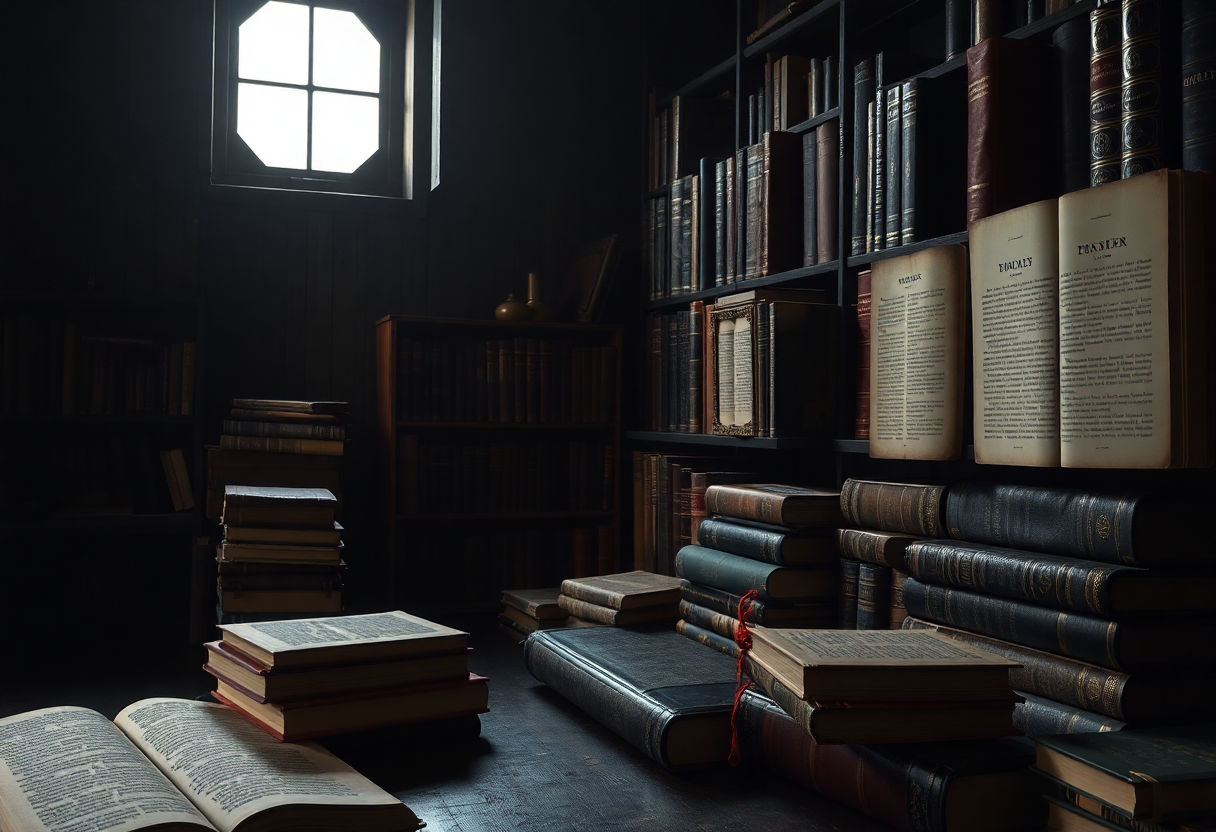
To truly appreciate the essence of Dark Academia, one must delve into its classic novels that set the foundation for this intriguing genre. Below are some must-read classics that capture the dark, intellectual lure of Dark Academia.
-
“The Secret History” by Donna Tartt: Often heralded as the quintessential Dark Academia novel, this book unveils a thrilling narrative centered around a group of elite students under the influence of a charismatic professor. Its exploration of morality, beauty, and the pursuit of knowledge interweaves with themes of guilt and consequence.
-
“If We Were Villains” by M.L. Rio: Combining a love for Shakespearean drama with a suspenseful plot, this novel follows a tight-knit group of theater students whose lives become entwined with their art, leading to a tragedy that blurs the lines between reality and performance.
-
“Brideshead Revisited” by Evelyn Waugh: This novel offers a nostalgic glimpse into the entwined lives of Charles Ryder and the Flyte family at an aristocratic household. With its detailed portrayal of academic life and introspection, the book delves into themes of friendship, religion, and the transience of happiness.
-
“Frankenstein” by Mary Shelley: As one of the forefathers of gothic literature, Shelley’s tale of Dr. Frankenstein’s ambition and its ramifications invites readers into a world where enlightenment and darkness coexist, making it a pivotal read in understanding Dark Academia’s roots.
Each of these classics is a gateway into the soul of the genre, presenting narratives that reflect the complexities of human thought and the mysterious allure of the academic world. They remain timeless in their ability to captivate and provoke contemplation.
Contemporary Must-Reads
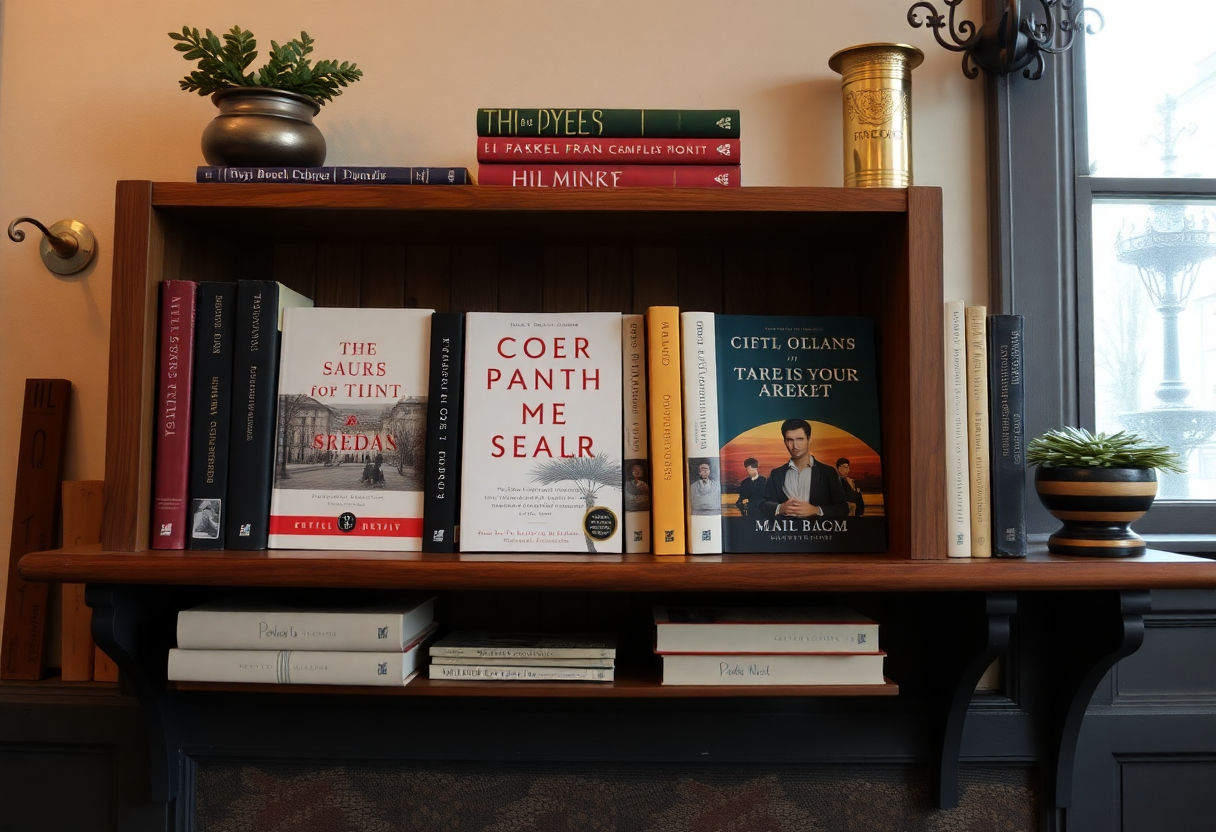
In recent years, Dark Academia has found renewed vigor with contemporary novels that capture its enigmatic essence while infusing modern storytelling techniques and themes. These books are not only leaving their mark on bestseller lists, but also engaging a whole new generation of readers with their profound narratives and thought-provoking motifs.
If We Were Villains by M.L. Rio is one such compelling tale. Set amidst the hallowed halls of an elite arts conservatory, the novel explores the complexities of identity and performance through the lens of classic Shakespearean drama. The intricate character dynamics and intense plot twists make it a quintessential Dark Academia work.
The Secret History by Donna Tartt remains a seminal piece in this category, often credited with paving the way for the genre’s modern resurgence. Its exploration of moral ambiguity, alongside the chilling depiction of intellectual obsession, embodies the key elements that have defined Dark Academia for new audiences.
For readers seeking a blend of the eerie and the cerebral, Ninth House by Leigh Bardugo offers an engrossing story filled with supernatural intrigue within the ivy-clad walls of Yale. Bardugo’s masterful world-building and her exploration of privilege and power through magical realism set this book apart as a contemporary staple.
These modern works continue to unravel the somber elegance and intellectual allure intrinsic to Dark Academia, securing the genre’s relevance and captivating readers who yearn for tales that dwell in the shadowy corridors of human thought and academia.
Diverse Voices in Dark Academia
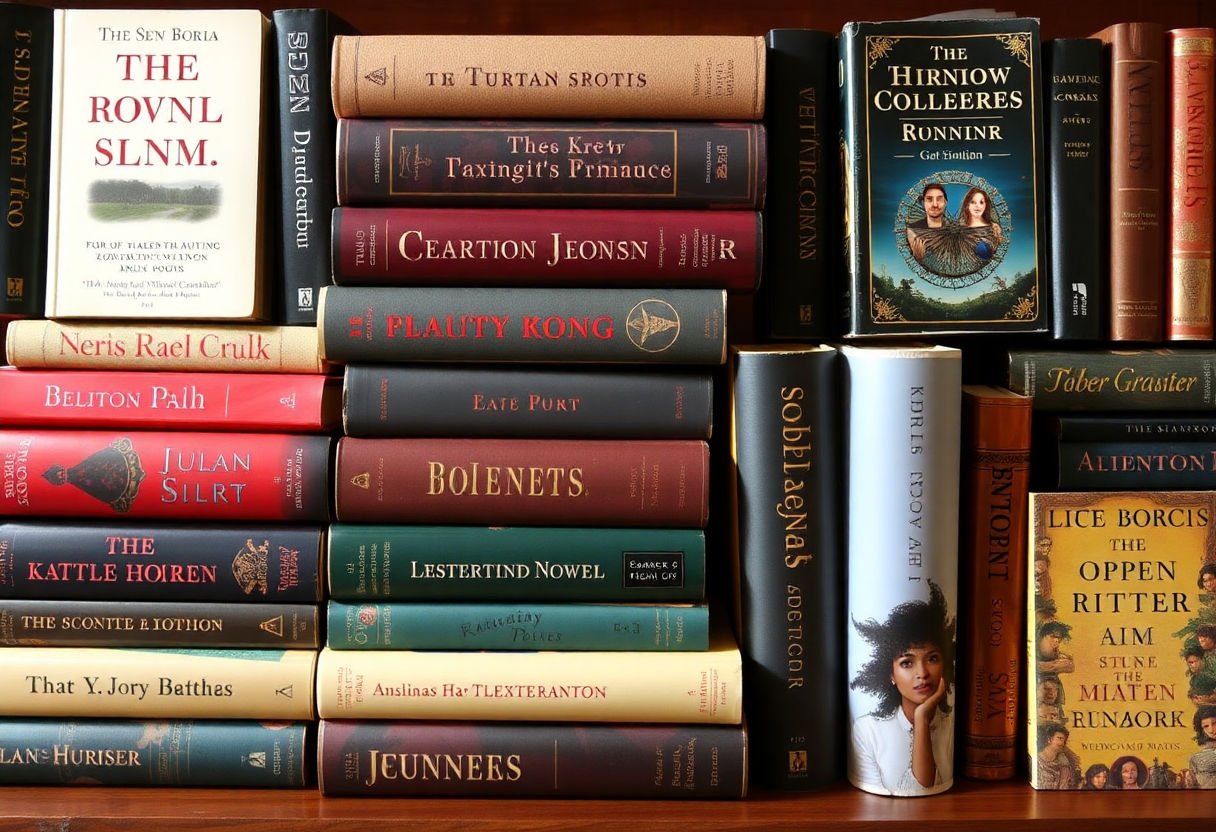
Dark Academia, traditionally rooted in Western literary traditions, has been significantly enriched by the inclusion of diverse voices. These perspectives offer a broadened understanding of the genre through unique cultural lenses and varied ideological frameworks.
One notable trend is the emergence of global authors who infuse their distinct cultural experiences into Dark Academia’s traditional themes. For instance, works by Silvia Moreno-Garcia frequently blend elements of gothic fiction with rich Mexican folklore, illustrating a culturally nuanced narrative that challenges conventional genre boundaries.
The contribution of minority authors is essential in diversifying Dark Academia, painting the genre with different shades of history and tradition. Rivers Solomon, an author known for their speculative fiction, incorporates themes of race and identity while exploring the often-exclusive academic environments characteristic of Dark Academia. Their work presents a critical examination of how marginalized communities navigate these spaces, offering a narrative depth that is both introspective and socially aware.
Moreover, Dark Academia now includes an array of narratives that reflect the LGBTQ+ experience. Writers such as Leigh Bardugo introduce queer characters whose stories unfold within the genre’s atmospheric settings, adding layers of complexity and representation. This inclusion not only broadens the appeal of Dark Academia but also provides a platform for underrepresented voices to be heard.
Through the works of these diverse authors, readers are invited to explore the multifaceted world of Dark Academia. This expansion not only enriches the genre but also underscores the significance of embracing varied perspectives to create inclusive and reflective literature.
Impact of Dark Academia on Popular Culture
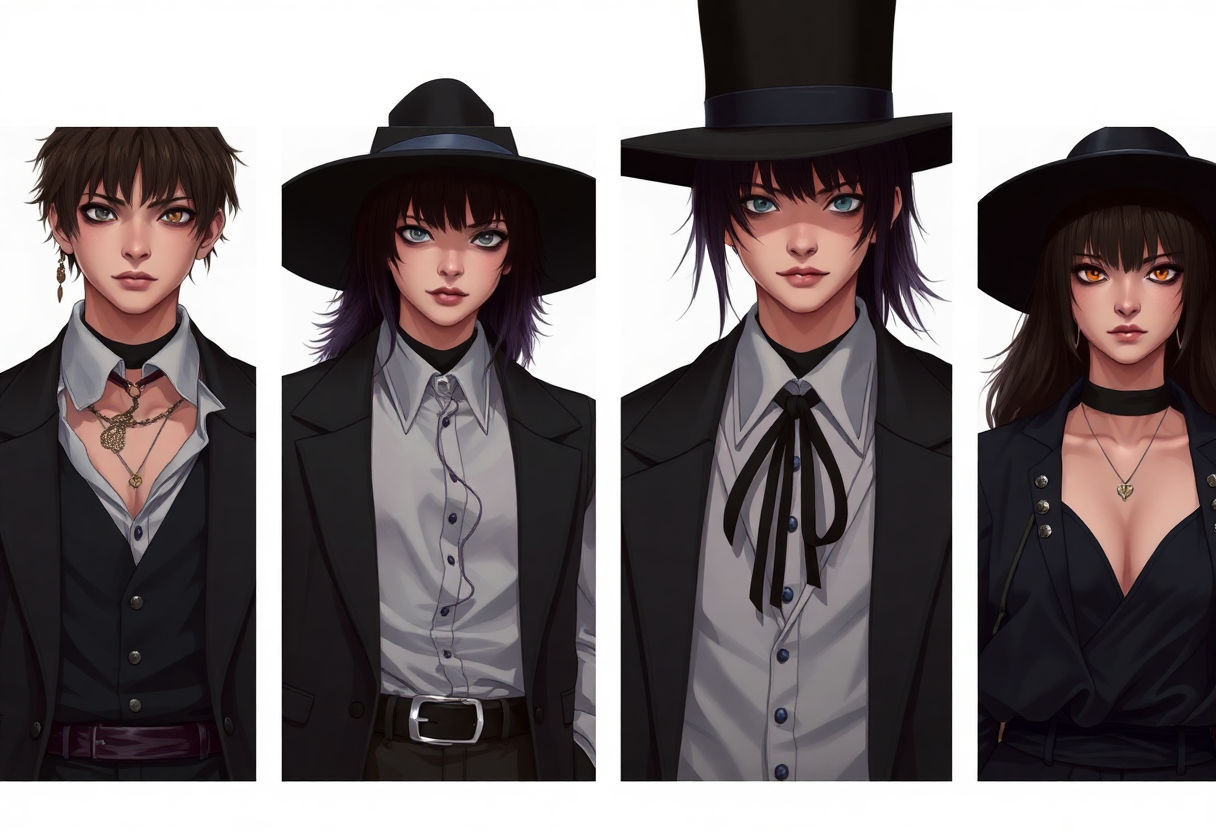
The Dark Academia aesthetic extends far beyond the pages of its novels, leaving a noticeable imprint on various facets of popular culture, particularly in media and fashion. The genre’s fascination with mysticism, intellectual rigor, and gothic undertones has inspired numerous adaptations in film and television, where the allure of elite academic settings combines with themes of mystery and the macabre. Noteworthy examples include films like Dead Poets Society and series such as The Umbrella Academy, which embrace aspects of the Dark Academia ethos.
In the realm of fashion, Dark Academia has carved out a distinct style characterized by a preference for vintage and scholarly attire. This includes tweed blazers, plaid skirts, turtleneck sweaters, and oxford shoes, often in muted tones like brown, black, and deep green. Fashion brands and enthusiasts have drawn heavily from these elements, fostering an aesthetic that celebrates the intellectual and the obscure.
The influence of Dark Academia on the digital world is equally profound, with numerous social media platforms serving as hubs for enthusiasts to showcase their interpretations of the genre. Platforms such as Pinterest and Instagram are replete with imagery that captures the moody, introspective essence of Dark Academia, helping to evolve and expand its reach.
Moreover, the proliferation of Dark Academia-themed content has prompted increased discussions about identity, class, and privilege, reflecting the genre’s deeper, often critical, engagement with societal structures. This multifaceted impact underscores the enduring appeal and versatility of Dark Academia in modern popular culture.
Conclusion
The timeless allure of Dark Academia lies in its seamless blend of intellectual depth and gothic mystique. This genre invites readers to explore academic settings infused with introspective and enigmatic themes, offering a profound literary experience. As Dark Academia continues to evolve, embracing diverse voices and modern interpretations, it promises to remain a compelling force in literature. Embrace its reading treasures for an enriching journey, where history, culture, and creativity intertwine. Indulge in this literary realm and uncover the mesmerizing charm that has captivated audiences worldwide.
Frequently Asked Questions
What is Dark Academia, and why is it so popular?
Dark Academia is a subculture and literary genre that emphasizes a passion for knowledge, exploration of existential themes, and appreciation for classic art and literature. Its popularity stems from its unique blend of intellectual, mysterious, and aesthetically rich elements that captivate readers and audiences.
Which books are recommended for those new to Dark Academia?
For newcomers to Dark Academia, it’s best to start with some of the classics that define the genre, such as “The Secret History” by Donna Tartt and “If We Were Villains” by M.L. Rio. These novels provide an engaging introduction to the themes and style characteristic of Dark Academia literature.
How has Dark Academia influenced popular culture outside of literature?
Dark Academia has significantly influenced fashion, music, and visual arts, often seen in its vintage-inspired aesthetic and the incorporation of gothic and scholarly motifs. This influence is prevalent in social media platforms, where enthusiasts share elements of this alluring subculture.
Are there diverse perspectives in Dark Academia literature?
Yes, there is a growing body of work within Dark Academia that reflects diverse voices and perspectives. Authors from different cultural backgrounds are contributing fresh narratives that expand the genre’s scope beyond its traditional confines, offering readers a wealth of varied experiences and insights.
What are common themes explored in Dark Academia novels?
Dark Academia novels frequently explore themes of identity, mortality, friendship, and the pursuit of knowledge. The interplay of light and dark elements, both literally and figuratively, invites readers to reflect on the complexities of human experience in academic settings.
